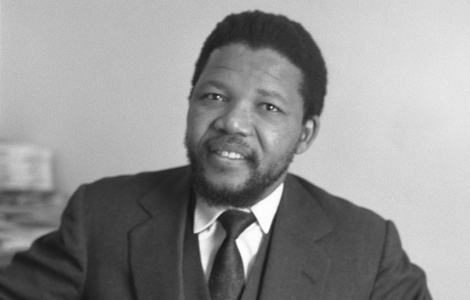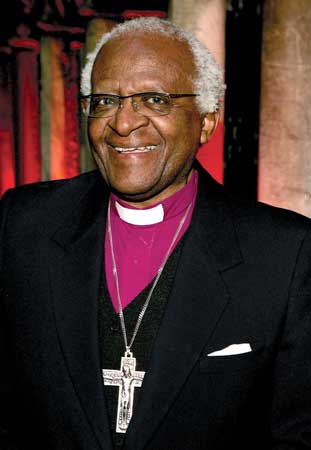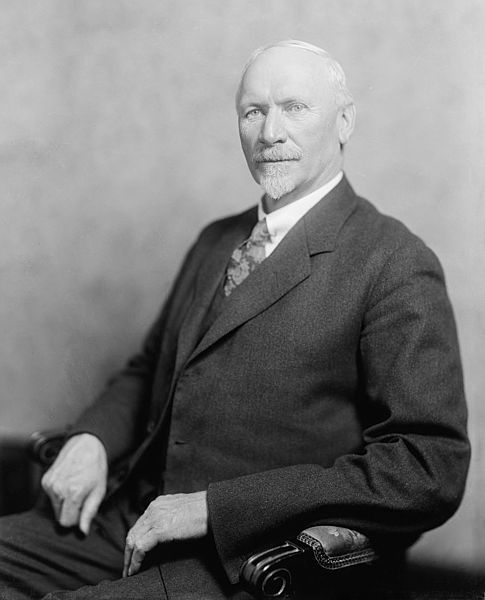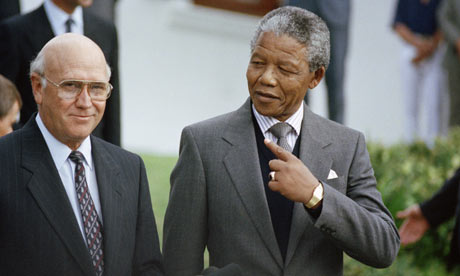 |
Craig White's Literature Courses Historical Backgrounds South Africa: Colonization & Independence |
 Republic of South Africa location (dark blue at bottom) |
Compared to Americans' general ignorance about African nations, in the late 20th century many American civil rights and human rights activists became aware of South Africa. This awareness was heightened by several points of identification between the USA and South Africa. However, the histories and ethnic dynamics of the two nations also differ in many respects.
![]() Similarity: Both nations have or had a dominant
white settler-colonialist culture
and a native black minority or repressed culture.
Similarity: Both nations have or had a dominant
white settler-colonialist culture
and a native black minority or repressed culture.
![]() Difference: Different white-black ratios: African
Americans constitute app. 12% of USA population; black Africans app. 80% or more of
South African population.
Difference: Different white-black ratios: African
Americans constitute app. 12% of USA population; black Africans app. 80% or more of
South African population.
![]()
![]() Similarity: In history of European
colonialism, the USA and South Africa
are both "settler colonies." In contrast to most colonization, where an
outside nation controls a a nation's government and finances (e.g. India or Hong
Kong),
settlers displace native peoples, taking possession of land and resources
more or less permanently.
Similarity: In history of European
colonialism, the USA and South Africa
are both "settler colonies." In contrast to most colonization, where an
outside nation controls a a nation's government and finances (e.g. India or Hong
Kong),
settlers displace native peoples, taking possession of land and resources
more or less permanently.
![]() Difference: After contact with European explorers, colonists,
and settlers, Native American Indian populations declined catastrophically, from 20
million to one million by some estimates. European warfare and
political-economic destabilization caused many deaths, but the overwhelming cause
of aboriginal mortality was European diseases to which Native Americans had little resistance.
Difference: After contact with European explorers, colonists,
and settlers, Native American Indian populations declined catastrophically, from 20
million to one million by some estimates. European warfare and
political-economic destabilization caused many deaths, but the overwhelming cause
of aboriginal mortality was European diseases to which Native Americans had little resistance.
African populations also suffered greatly from European warfare, the slave trade, economic destabilization, and other forms of stress and exploitation, but African peoples had more resistance to European diseases, so native African populations more rarely reached a point of no return.
![]()
![]() Similarity: Both settler-nations maintained dominant-culture
status through legal segregation. The USA's system was variously
called Jim Crow, racial segregation or discrimination, or "separate but equal."
The South African system was apartheid, an Afrikaans word for
"separateness." (Afrikaans language is descended from Dutch, where "apartheid" =
"apart-hood.")
Similarity: Both settler-nations maintained dominant-culture
status through legal segregation. The USA's system was variously
called Jim Crow, racial segregation or discrimination, or "separate but equal."
The South African system was apartheid, an Afrikaans word for
"separateness." (Afrikaans language is descended from Dutch, where "apartheid" =
"apart-hood.")
![]() Difference: Jim Crow laws were established in the late 1800s,
especially in the post-Reconstruction Southern USA, and ended as a legal
institution with U.S. Supreme Court decisions and Congressional Civil Rights
Laws of the 1950s and 1960s. Apartheid was instituted in the 1920s, intensified
in 1948, and continued
until 1994.
Difference: Jim Crow laws were established in the late 1800s,
especially in the post-Reconstruction Southern USA, and ended as a legal
institution with U.S. Supreme Court decisions and Congressional Civil Rights
Laws of the 1950s and 1960s. Apartheid was instituted in the 1920s, intensified
in 1948, and continued
until 1994.
![]()
![]() Similarity: Both countries ended legal segregation—1960s for
USA, 1990s for South Africa.
Similarity: Both countries ended legal segregation—1960s for
USA, 1990s for South Africa.
![]() Difference: In some regards segregation in the USA has
increased since the 1960s, especially in schools, mostly through geographical
and economic
separation ("white flight") and
establishment of segregationist Bible Academies or home schooling. African
Americans enjoy increasing visibility in media and positions of power, and direct verbal
expressions of racial discrimination are repressed, but poverty and
unemployment rates remain higher for African Americans than for White and Asian
Americans.
Difference: In some regards segregation in the USA has
increased since the 1960s, especially in schools, mostly through geographical
and economic
separation ("white flight") and
establishment of segregationist Bible Academies or home schooling. African
Americans enjoy increasing visibility in media and positions of power, and direct verbal
expressions of racial discrimination are repressed, but poverty and
unemployment rates remain higher for African Americans than for White and Asian
Americans.
White South Africans remain wealthier than black South Africans, but standards of living have fallen for many white and black South Africans. South Africa partly resembles black-majority island nations in the Caribbean where some white families have accumulated wealth for generations, but now black Africans control the government. Post-Apartheid South Africa has struggled to maintain a growing economy while redistributing wealth. High rates of HIV-AIDS also affect economic performance.
![]()
Unique historical background and contemporary multi-cultural experiment
11 languages recognized in Constitution
#3rd most common language: Afrikaans < 17c Dutch
#5 South African English
Population:
Among five population groups identified by the South African censue, app. 80% African,
9% White, 9% Colored (mixed), 2-3% Asian, 0.5% Other.
Dominant among Asians are people of Asian-Indian descent who were brought or recruited by the British as indentured laborers for sugar plantations. Chinese immigration has increased recently.
![]()
Time-Line
![]() South Africa
South Africa
![]() Modern humans inhabiting area for 170,000 years
Modern humans inhabiting area for 170,000 years
![]() Xhosa in area for 1000 years before Euro contact
Xhosa in area for 1000 years before Euro contact
![]() Late 1400s: Portuguese explore passage around
Late 1400s: Portuguese explore passage around
![]() 1652 Dutch colonization begins; slaves imported from
1652 Dutch colonization begins; slaves imported from
![]() 19c discovery of diamonds > Anglo-Boer Wars
19c discovery of diamonds > Anglo-Boer Wars
![]() Anglo-Boer Wars (1880-81 & 1899-1902) (Boers = descendents of Dutch settlers)
Anglo-Boer Wars (1880-81 & 1899-1902) (Boers = descendents of Dutch settlers)
Xhosa
Famous Xhosa people: Nelson Mandela, Archbishop Desmond Tutu
|
Nelson Mandela (1918-2013) |
Desmond Tutu, b. 1931 First South African Anglican Archbishop Nobel Peace Prize 1983 |
![]() Xhosa-speakers absorbed into wage economy > union development & political
organizations
Xhosa-speakers absorbed into wage economy > union development & political
organizations
![]() 1652 Cape Colony & Capetown founded by Dutch East India Company > "Boers
1652 Cape Colony & Capetown founded by Dutch East India Company > "Boers
![]() 1910 Cape
1910 Cape
![]() Late 1800s > early 1900s: restrictions on native land ownership, native
movement
Late 1800s > early 1900s: restrictions on native land ownership, native
movement
|
Jan Smuts, 1870-1950 |
F. W. de Klerk (b. 1936) & Nelson Mandela; de Klerk was last prime minister of apartheid South Africa, shared 1993 Nobel Peace Prize with Mandela |
![]() 1930s apartheid institutionalized: white, colored, black w/ special rights &
restrictions
1930s apartheid institutionalized: white, colored, black w/ special rights &
restrictions
![]() 1948 Apartheid strengthened; wide disparities b/w white and black standards of
living;
1948 Apartheid strengthened; wide disparities b/w white and black standards of
living;
![]() 1960 March 21, Sharpeville Massacre: South African police kill 69 at mass
protest, leading to international condemnation; date remembered in national and
international human rights observances
1960 March 21, Sharpeville Massacre: South African police kill 69 at mass
protest, leading to international condemnation; date remembered in national and
international human rights observances
![]() 1960s-70s etc boycotts
1960s-70s etc boycotts
![]() 1974, 1993 agreements to transfer power
1974, 1993 agreements to transfer power
![]() 1993 F W de Klerk & Nelson Mandela (b. 1918; President 1994-99; 27 years in
prison, released 1990)
1993 F W de Klerk & Nelson Mandela (b. 1918; President 1994-99; 27 years in
prison, released 1990)
![]() 1994 elections, African National Congress > Commonwealth
1994 elections, African National Congress > Commonwealth
![]() Post-Apartheid: general economic decline, AIDS, drugs & gangs, out-migration of
whites but many remain
Post-Apartheid: general economic decline, AIDS, drugs & gangs, out-migration of
whites but many remain
|
|
map of Boer Wars, late 19c
|
![]()
South African literature
Olive Schreiner, The Story of an African Farm (1883)
Alan Paton, Cry, the Beloved Country (1948)
Nadine Gordimer (1991 Nobel), July's People (1981)
Athol Fugard, "Master Harold" . . . and the Boys (1982)
J. M. Coetzee (2003 Nobel Prize for Literature)
Rhodesia / Zimbabwe literature
Doris Lessing (2007 Nobel Prize for Literature)
B. 1919 Persia / Iran
1924-42 family to Rhodesia, farming
1942- London (metropole)
The Grass is Singing (1950)
5-novel The Children of Violence sequence on coming of age in British colonial Africa, marrying and bearing children there and moving to London: Martha Quest (1952), A Proper Marriage (1954), A Ripple From the Storm (1958), Landlocked (1965) and The Four-Gated City (1969)
African Laughter: Four Visits to Zimbabwe (1992)
The Golden Notebook (1962)
The Good Terrorist (1985)
5-novel "space fiction" sequence: Canopus in Argos: Archives (1979-83)








